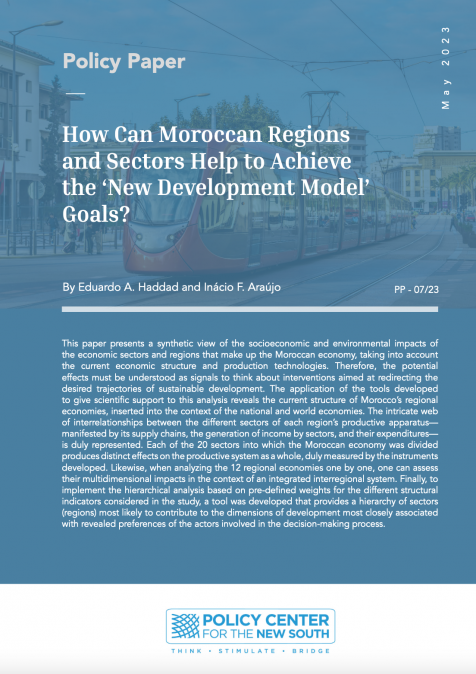Publications /
Policy Paper
This paper presents a synthetic view of the socioeconomic and environmental impacts of the economic sectors and regions that make up the Moroccan economy, taking into account the current economic structure and production technologies. Therefore, the potential effects must be understood as signals to think about interventions aimed at redirecting the desired trajectories of sustainable development. The application of the tools developed to give scientific support to this analysis reveals the current structure of Morocco’s regional economies, inserted into the context of the national and world economies. The intricate web of interrelationships between the different sectors of each region’s productive apparatus— manifested by its supply chains, the generation of income by sectors, and their expenditures— is duly represented. Each of the 20 sectors into which the Moroccan economy was divided produces distinct effects on the productive system as a whole, duly measured by the instruments developed. Likewise, when analyzing the 12 regional economies one by one, one can assess their multidimensional impacts in the context of an integrated interregional system. Finally, to implement the hierarchical analysis based on pre-defined weights for the different structural indicators considered in the study, a tool was developed that provides a hierarchy of sectors (regions) most likely to contribute to the dimensions of development most closely associated with revealed preferences of the actors involved in the decision-making process.









